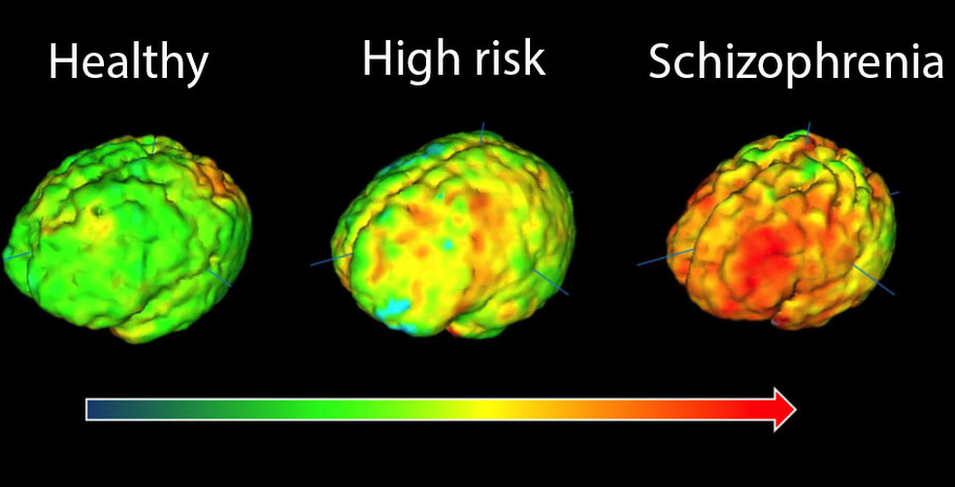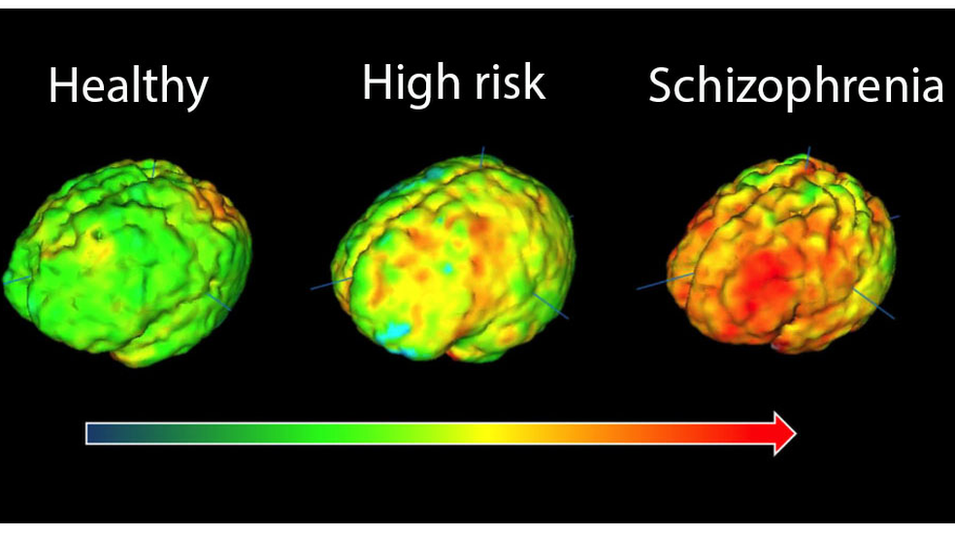Have you got the wrong impression about schizophrenia?
- Published
- comments

Schizophrenia does not mean you have a split personality or automatically become violent, a mental health charity has warned.
Rethink Mental Illness said a survey of 1,500 people showed that the condition is widely misunderstood.
Schizophrenia commonly causes hallucinations, such as hearing voices, or delusions and can make people lose interest in life.
But it should not be "a dirty word or a term of abuse", the charity said.
The organisation warned such myths are dangerous.
One in 100 people is affected by schizophrenia during their life, but 45% of those surveyed thought the illness was much more common.
Half mistakenly thought the illness was defined by a split personality and a quarter believed it definitely led to violent behaviour.
But the reality is very different, a new campaign by the charity claims.
It is not true that "someone with schizophrenia can appear perfectly normal at one moment, and change into a different person the next", the Royal College of Psychiatrists says on its website, external.
And although there is a higher risk of violent behaviour if you have schizophrenia, it does not necessarily make people dangerous.
Comparatively, drugs and alcohol cause far more violence.
People with schizophrenia are far more likely to be harmed by other people than other people are to be harmed by them, the psychiatrists say.
Schizophrenia can affect the way individuals think, feel and behave.
Experiencing hallucinations is common and people often hear voices, which can sound very real and be critical and abusive, although they are all in the mind.

Brain scans have discovered higher activity levels in part of the brain's immune system in schizophrenia patients than in healthy volunteers
Delusions can occur too, which means believing something completely and feeling like no-one else sees the world in the same way.
Other symptoms can include depression, loss of concentration and feeling uncomfortable around other people. Some people also have painful feelings in their body.
The Rethink Schizophrenia campaign said the illness can affect other aspects of life too - for example people with schizophrenia die 15 to 20 years earlier than the rest of the population on average.
And only 8% of those with the illness who want to work are currently employed.
The charity said this is because physical health problems are often missed or attributed to mental illness, and the side-effects of medication can cause complications.
'Change attitudes'
Brian Dow, director of external affairs at Rethink Mental Illness, said: "It's about time we all got to grips with what schizophrenia is and what it isn't.
"Schizophrenia can be treated and managed, just like many other illnesses. It's not a dirty word or, worse, a term of abuse."
He added that myths stopped people from getting jobs, forming relationships and getting access to the healthcare they needed.
"The symptoms of schizophrenia don't fit neatly into a box, everyone will experience it differently," he said.
"However, we can all play a role in rethinking schizophrenia, and helping to change attitudes, by learning to separate the myths from the facts."
Prof Wendy Burn, president of the Royal College of Psychiatrists, said it was "astounding" that schizophrenia was still so widely misunderstood.
"To tackle the stigma that so many living with schizophrenia face, we have a huge task ahead of us in informing and educating the public," she said.
"We also need to ensure that more medical students choose psychiatry so that those living with schizophrenia have specialist doctors available to treat them."
- Published25 February 2017

- Published9 January 2017

- Published16 October 2015
